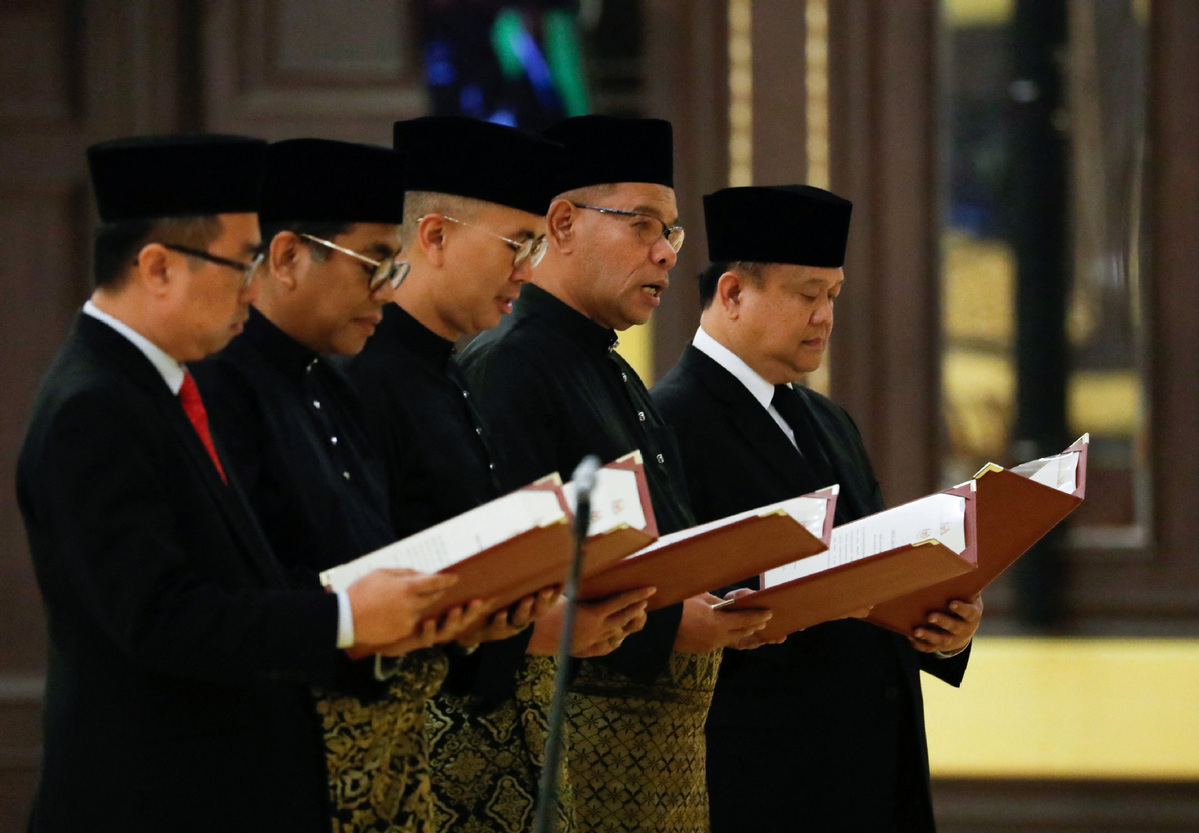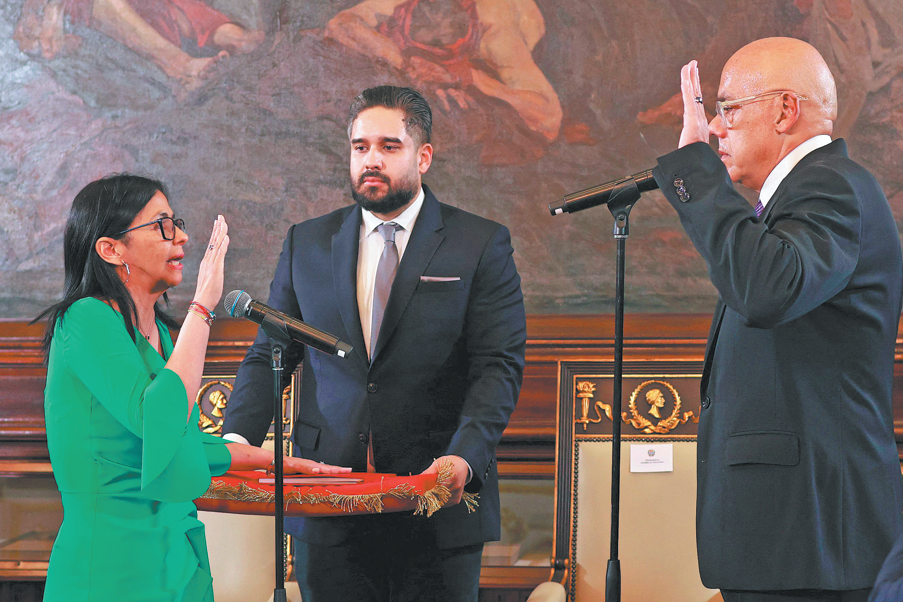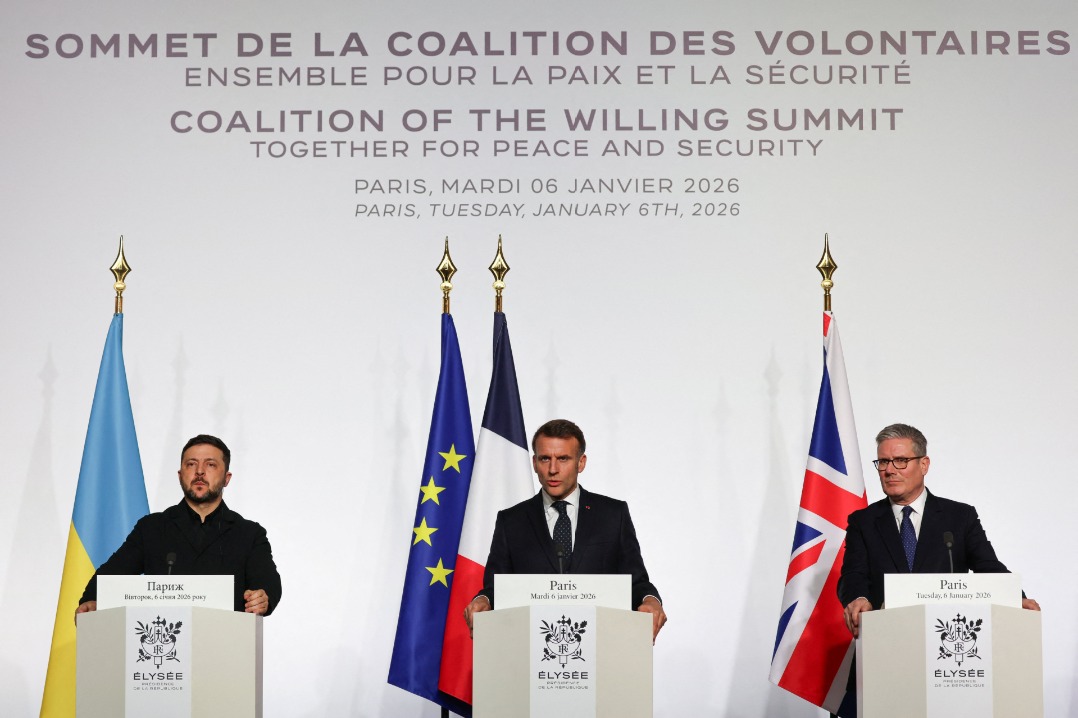Bipartisanship rules for Malaysian PM


After ambiguous election result, vying parties given a role in wielding power
For the newly appointed Malaysian cabinet, the first order of the day is how to help the country to recover not only from the pandemic but from divisive politics that has hampered the government over the past four years.
On Friday Prime Minister Anwar Ibrahim appointed a 28-member cabinet composed of parliamentarians of different political parties who agreed to be part of the unity government. These include stalwarts not only of the Anwar-led Pakatan Harapan coalition but also representatives of Barisan Nasional, the longest-ruling political coalition, and the Eastern Malaysia-based Gabungan Parti Sarawak.
Anwar is also heading the finance ministry. He appointed leaders of BN and GPS as deputy prime ministers: BN's Ahmad Zahid Hamidi, who also heads the rural and regional development ministry, and GPS' Fadillah Yusof, who also handles the plantation industries and commodities portfolio.
Cabinet members took their oath of office on Saturday and were due to start their term on Monday.
Wong Chin Huat, professor of governance studies at the Jeffrey Cheah Institute on Southeast Asia of Sunway University in Kuala Lumpur, said the cabinet is an "inclusive team" with representatives of various parties, ethnic communities, states and gender.
"It is not a magic team because Anwar cannot possibly just pick talent and ignore partisan and sectoral representation (given) his commitment to have a lean administration," Wong said. The 28-minister cabinet is smaller than those of previous governments, he said.
"This is a post-election cabinet," said James Chin, professor of Asian Studies at the University of Tasmania in Australia. "In other words, the parties in this coalition government came together after the election."
With no party winning a simple majority in elections on Nov 19, Anwar had to reach out to other parties for a coalition government. This is why Anwar, in appointing a post-election cabinet, had to make several compromises, including appointing Ahmad Zahid, who is facing corruption charges, Chin said.
"But having said that, a lot of Malaysians are relieved that the government is finally put in place. Malaysia is a multiracial (and) multireligious country. This is the best cabinet they can hope for."
Serina Abdul Rahman, lecturer in the Department of Southeast Asian Studies, National University of Singapore, said Ahmad Zahid's appointment "was necessary as it was him that ensured that all the BN parliamentarians toed the coalition line".
While Malays dominate Anwar's cabinet, some key posts were given to ethnic minorities.
Five women members of parliament, including the Education Minister, Fadhlina Sinek, and the Law Minister, Azalina Othman Said, are part of the new cabinet. Likewise, MPs from East Malaysia, a region long underrepresented in Malaysian politics and governance, were given key posts. The most prominent of these is that of deputy prime minister for Datuk Seri Fadillah Yusof.
Three key portfolios that are main contributors to the national GDP went to Eastern Malaysian MPs, Serina said: Fadillah, who concurrently serves as minister of plantation industries and commodities; Works Minister Alexander Nanta Linggi and Tourism Minister Tiong King Sing. Anwar has likewise appointed Armizan Mohd Ali, MP from the state of Sabah, as minister in the prime minister's department in charge of Sabah and Sarawak affairs.
"This indicates that the new government will focus on East Malaysia, something that (the states of Sabah and Sarawak) have demanded for a long time, Serina said. "This will hopefully ensure that (parties from East Malaysia) continue to support this government through its term."
And while there are criticisms about the small number of women MPs in the cabinet, Serina said increasing female representation will only happen if there's an environment that will allow women to "effectively function, work and climb the political ladder from the outset". This, she said, requires "a huge dismantling of deeply ingrained cultural restrictions. We have a long way to go with this one."
PRIME SARMIENTO in Hong Kong
prime@chinadailyapac.com

































